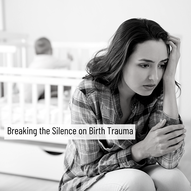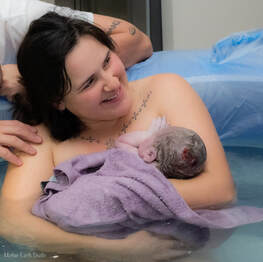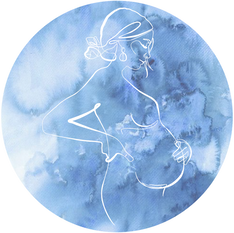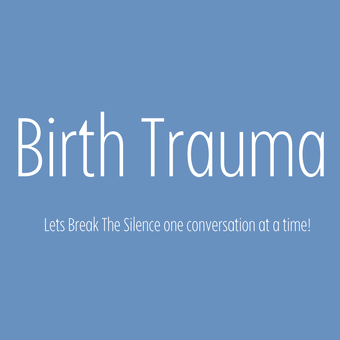 The birth of your baby is suppose to be a joyful time and for many women it is, however for some women the experience can result in mixed or negative emotions. Sometimes there may also be a physical injury as a result from the birth. Birth trauma is distress or physical injury experienced by women during or after giving birth. Distress can be emotional or psychological and physical injury can include perineal injury, pelvic floor muscle injury, sexual discomfort post birth, prolapse, caesarean wound complications. Birth Trauma is a significant issue that affects around 1 in 3 women who give birth. Birth trauma can have long-lasting effects on a woman's mental health and wellbeing, and it is important to raise awareness of this issue and provide support for those who are affected. Birth trauma can include: difficult or traumatic childbirth experiences, unexpected outcomes, a feeling of inadequate support from healthcare providers, or simply the experience itself. Women who have experience birth trauma may feel a sense of loss of control, fear, anxiety, depression, guilt, shame, and anger. Stigma, isolation and lack of understanding can make these feelings worse. It is important to recognise that birth trauma can occur regardless of whether the birth was a vaginal or a cesarean birth. Trauma can occur during any stage of, labor or birth, including before, during, or after. Some common triggers of birth trauma include prolonged labor, medical complications, emergency procedures, feelings of abandonment or neglect by healthcare providers, or feelings of coercion into things that you really didn't want, feelings of disempowerment, a lack of support and understanding for your wishes during labour and birth, or simply just the labour and birth process itself even if it all went well. It is, important to acknowledge that psychological distress as a result from birth is how the woman perceives her birth, not how anyone else thinks the birth went. For women who have experienced birth trauma, seeking support and treatment is essential. It is important to talk to a healthcare provider or mental health professional about your, experiences and feelings. Therapy and counseling can help women process their emotions and develop coping strategies to manage their symptoms. There are also a number of strategies that women can use to manage their symptoms of birth trauma. These may include seeking out support groups, practicing self-care activities, and engaging in mindfulness exercises. It is important for women to prioritise their mental health and wellbeing, during this time and to seek out resources and support to help them navigate their feelings. I am currently finishing my Masters in Counselling and will specifically be looking to treat women for birth trauma, postnatal depression, antenatal depression and anxiety, and pregnancy loss and grief. Birth trauma is a significant issue that unfortunately affects many women who have given birth in Australia. It is important, to raise awareness of this issue, break the silence, and provide support and resources for those who are affected. By having the conversation, we can help women to heal from their experiences of birth trauma and move forward with hope and resilience. Some useful links: https://birthtrauma.org.au/what-is-birth-trauma/ https://www.lifeline.org.au/ https://www.https://forwhenhelpline.org.au/ https://panda.org.au/articles/childbirth-trauma-and-recovery Luv Axx What is Birth Trauma | Brisbane Birth Trauma | Signs of Birth Trauma | Postnatal Depression and Birth | Birth | Postnatal Depression | why do I feel sad | Pelvic Floor Injury | Prolapse | Distress following Birth | Birthing | Hypnobirthing | Natural Birth | Depression | Anxiety | Anxiety after birth | depression after birth | Birth Trauma | Mother Earth Birthing | Pregnancy | Postnatal sadness
0 Comments
 Hypnobirthing is not as hippie as it sounds. It is an educational program that prepares couples for a positive birth experience no matter how or where they choose to birth. Hypnobirthing Australia is founded and owned by a Gold Coast woman, Melissa Spilsted. Melissa has put so much time and energy into her hypnobirthing program - the Positive Birth Program - that as a registered midwife, I can honestly say the educational material is 100% in line with the current research and evidence in relation to maternity care in Australia. I am proud to be affiliated with Hypnobirthing Australia. The Positive Birth Program is the natural approach to childbirth! The program prepares you with the knowledge, confidence and tools you need to birth calmly. Birth can and should be, a positive experience – one that you will always want to remember. Hypnobirthing classes in Brisbane are facilitated by hypnobirthing practitioners who have been trained under Melissa to take you through the Positive Birth Program. Each practitioner facilitates the same program and are scattered throughout Brisbane, making it easy for you as the consumer to access the program. The Positive Birth Program is facilitated over 12 hours and comes with your own unique workbook which includes a "Cheat Sheet" for partner, guides on acupressure points useful in labour, hypnotic scripts, positions for labour and much more. In addition to this the Positive Birth Program comes complete with access to an app which contains MP3 playlists, birth videos and more. The amount of value in this package is amazing. As a registered midwife myself, having taught antenatal classes most of my career, I can honestly say this program is awesome. So is it worth paying for hypnobirthing, its a 150% YES from me.  How does Hypnobirthing work and when is the best time to learn Hynobirthing? Hypnobirthing works really well if you have practised the hypnotic skills during pregnancy. If you can imagine a time you drove home from work and got carried away thinking about "life admin stuff" when all of a sudden you can't remember the last 2-3 kms. How did you drive that distance when your focus was clearly not where it needed to be? This common experience is a light hypnotic trance. Now if you can imagine trying to do that after having moved to a new city, and new job ..... would it be common to have that same experience within the first few months? I am going to guess you said no .... why is that???? Any thoughts???? The reason you could do that originally is because you had driven that same route home everyday, and in doing so your subconscious mind remembered the way home, essentially making you switch to auto pilot. When you moved to the new city and job, your subconscious had not had time to remember the way home. Hypnobirthing techniques are very similar. the more you practise the skills the bigger the memory bank in the subconscious becomes and the easier it will be to switch to auto pilot. So when is the best time to learn Hypnobirthing? It is recommended around 20 weeks gestation, in order to give you time to practise the hypnotic skills. The hypnobirthing program can be taken later in the pregnancy if needed. Does the program have any disadvantages? No absolutely not. The program is designed for all types of birth including emergency caesareans. The techniques can be used in any situation and in fact throughout the rest of your life. How good is that!!!! I hope you have enjoyed reading my blog, and pls leave comments below. Pls don't hesitate to reach out to me on [email protected] or phone 0428225896. Luv Astrid xx What is hypnobirthing?, When should I start practising hypnobirthing?, Are there any disadvantages with hypnobirthing?, Hypnobirthing Brisbane, Positive Birth Program, Hypnobirthing Australia, Brisbane hypnobirthing, Hypnobirthing, Is hypnobirthing worth it?, Midwife, Birth Classes, Mother Earth Birthing |
Blog Index
All
Mother Earth BirthingA journey through the beauty of pregnancy and birth. Archives |
All photographs, text, graphics and other content of this website, as well as its overall design
are copyright © Mother Earth Birthing & Mother Earth Studio 2021. This also includes content on my Facebook and Instagram accounts.
With this being the case no content or imagery can be copied, downloaded, reproduced, printed, transmitted,
manipulated or used in any way without written permission of myself - All rights reserved.
Under all circumstances, copyright remains Mother Earth Birthing and Mother earth Studio
where copyright is protected under international law.
are copyright © Mother Earth Birthing & Mother Earth Studio 2021. This also includes content on my Facebook and Instagram accounts.
With this being the case no content or imagery can be copied, downloaded, reproduced, printed, transmitted,
manipulated or used in any way without written permission of myself - All rights reserved.
Under all circumstances, copyright remains Mother Earth Birthing and Mother earth Studio
where copyright is protected under international law.
website by Rubi Creations Digital


 RSS Feed
RSS Feed